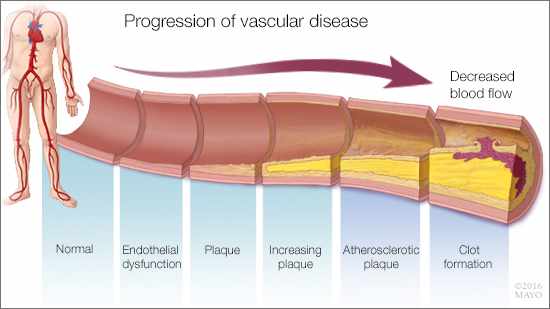-
Mayo Clinic Q and A: What causes erectile dysfunction and should it be checked?

DEAR MAYO CLINIC: Is it easy to determine a direct cause of erectile dysfunction? My husband is 51 and refuses to see his doctor even though I know it’s bothering him. Does erectile dysfunction ever go away on its own, or is treatment always necessary?
ANSWER: Finding the specific cause of erectile dysfunction isn’t always simple. A number of underlying medical conditions can trigger erectile dysfunction, and other factors such as stress, depression or anxiety can make it worse. But it’s important to have erectile dysfunction evaluated. It could be an early warning sign of other potential health problems. And erectile dysfunction is unlikely to resolve without some treatment or lifestyle changes. Your husband definitely should see his health care provider about erectile dysfunction.
Erectile dysfunction is the inability to get or keep an erection firm enough for sex. It’s a common problem. Studies of men 40 to 70 have found that about 52 percent have some degree of erectile dysfunction.
Having erection trouble from time to time isn’t necessarily a cause for concern. If erectile dysfunction is an ongoing issue, however, it can cause stress, affect self-confidence and contribute to relationship problems. Perhaps most important, though, problems getting or keeping an erection can be a sign of an underlying health condition that needs treatment, such as vascular disease, which can lead to a heart attack or stroke.
The reason for the connection between erectile dysfunction and conditions such as heart disease often stems from problems with the inner lining of blood vessels, called the endothelium, and smooth muscle. Endothelial dysfunction causes inadequate blood supply to the heart and impaired blood flow to the penis. It also contributes to the development of plaque buildup in the arteries, which is a risk factor for heart disease called atherosclerosis.
Erectile dysfunction doesn’t always signal an underlying heart problem. However, research suggests that the earlier a man experiences erectile dysfunction that is not due to psychological factors, the more likely he is to have hidden — sometimes called occult — endothelial dysfunction, and the more likely he is to experience something like a heart attack in the future.
Many of the health problems associated with heart disease and stroke also are associated with erectile dysfunction, including high blood pressure, high cholesterol and diabetes. Your husband should see his health care provider to be screened for these and other similar conditions as a first step in identifying the possible cause of erectile dysfunction.
If an underlying medical condition is found, treatment for it may help resolve erectile dysfunction. In some cases, lifestyle changes also can be helpful in combating erectile dysfunction, as well as lowering the risk for other health concerns.
For example, several studies have demonstrated the benefits of exercise on improving erectile function. One study found that when men increased their level of exercise to 120 minutes or more a week of cardiovascular activity, such as running, biking, swimming or jogging, it had an effect nearly as strong as taking an erectile dysfunction medication. Quitting smoking, losing excess weight and eating a healthy diet all can have a positive effect, too.
In men who have no other health concerns and in whom a specific cause of erectile dysfunction cannot be identified, medication such as sildenafil, tadalafil, vardenafil or avanafil, often can treat erectile dysfunction successfully. These medications enhance the effects of nitric oxide — a natural chemical in the body that relaxes muscles in the penis, increasing blood flow. When these medications no longer are effective, other erectile dysfunction treatments are available.
Encourage your husband to make an appointment to see his health care provider. Evaluating and treating erectile dysfunction is important not only for his sexual health, but also it may benefit his long-term health overall. — Dr. Landon Trost, Urology, Mayo Clinic, Rochester, Minnesota







